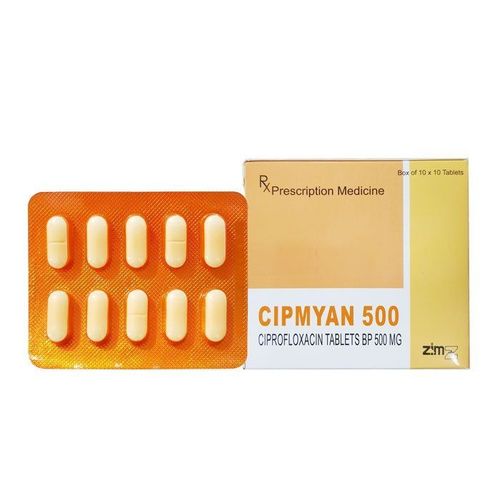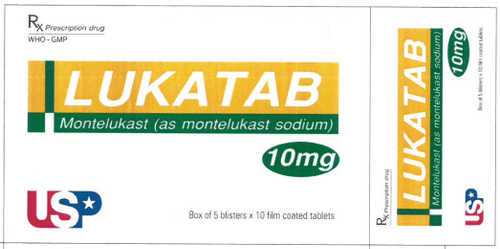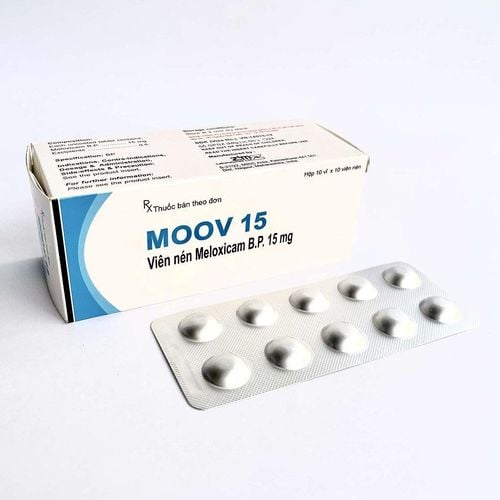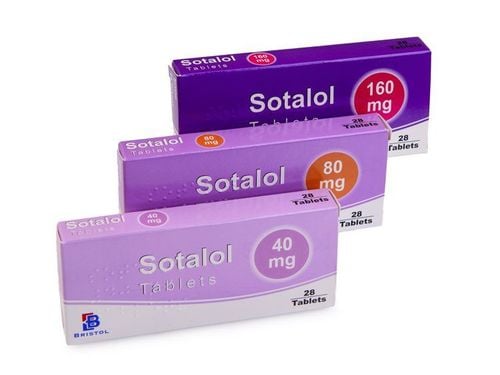This is an automatically translated article.
This article is professionally consulted by Master, Doctor Nguyen Minh Son - Interventional Cardiologist - Department of Medical Examination & Internal Medicine - Vinmec Nha Trang International General Hospital.Atrial extrasystoles is an arrhythmia in which the atria emit an abnormal premature beat, before a normal heart rate, but this heart rate is often weak and poorly pumped, causing the feeling of skipping a beat, the palpitations you are experiencing. right.
1. What is atrial extrasystoles?
Atrial extrasystoles are a common type of arrhythmia, characterized by an earlier-than-normal heartbeat caused by abnormal electrical signals from the atria, the upper chambers of the heart.Normally, the sinus node rhythms the entire heart and controls the heart rate through electrical signals. When an abnormal electrical signal from the atria kicks in (not the sinus node), causing an extrasystole, which is usually weak, the heart will "pause" for a short time to beat a strong beat, in order to pump blood. accumulates out of the chambers of the heart, so you will feel a loss in your chest, your heart skips a beat.
Atrial extrasystoles are relatively common, can occur in healthy individuals, but rarely cause symptoms and are mostly harmless. If the atrial extrasystoles come too soon, encountering the refractory state of the atrioventricular conduction tract caused by the previous stroke, then the electrical impulses are not conduction to the ventricles, the extrasystoles may travel in bursts causing slow heart rate. This condition is also known as blocked atrial extrasystoles (block means blocked).
2. Symptoms of atrial extrasystoles
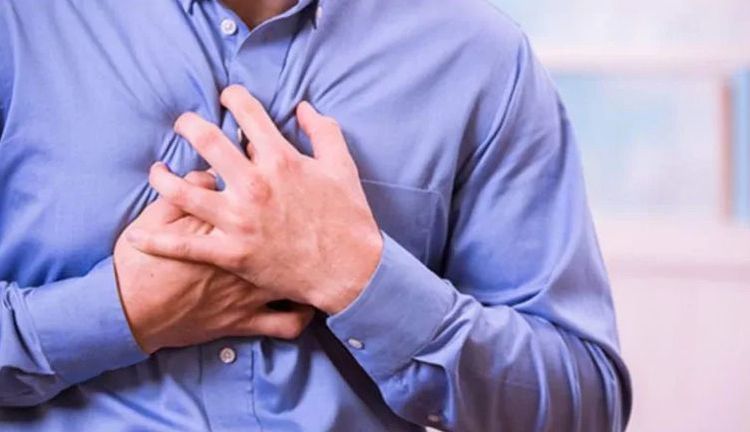
Triệu chứng phổ biến nhất của của ngoại tâm thu nhĩ là tim đập không đều, tim đập mạnh hơn, cảm giác rung động vùng ngực
In addition to those common symptoms, people with atrial fibrillation may also experience other common cardiovascular symptoms such as:
Fainting, lightheadedness. Feel your heart beat clearly. Sweating, pale face when the pulse is irregular. Chest pain, shortness of breath, dizziness. Fatigue after exercise. Sometimes, people with atrial extrasystoles will not have obvious symptoms, making it difficult to detect the disease at an early stage.
3. Is atrial extrasystoles dangerous?
Atrial extrasystoles are mostly benign and not dangerous in the early stages. Atrial extrasystoles often do not cause any symptoms, or are described as a feeling of palpitation, an extra pulse, palpitations, or heart palpitations. If atrial extrasystoles appear in clusters of 5-10 beats, it will cause dizziness or chest fatigue, palpitationsProlonged atrial extrasystoles make the patient body and mind fatigue, headache, stress, thereby adversely affecting the ability to concentrate, work efficiency, and quality of daily life.
Cases of atrial extrasystoles that appear rarely do not need to be too concerned. However, the disease can progress gradually, especially in people with cardiovascular disease such as coronary heart disease, cardiomyopathy... And it is a warning sign of serious arrhythmia such as atrial fibrillation, arrhythmia. supraventricular tachycardia (SVT)... At this point, you must see a cardiologist immediately to be prescribed antiarrhythmic drugs.
4. How to treat atrial extrasystoles
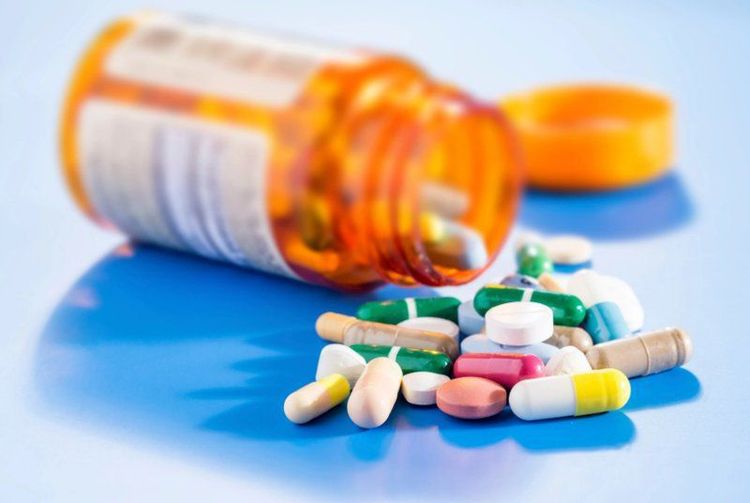
Có thể dùng thuốc để điều trị nguyên nhân gây bệnh ngoại tâm thu nhĩ
3.1. Drugs to treat atrial extrasystoles: Treat the cause of the disease: Supraventricular extrasystoles caused by other diseases such as hypertension, hyperthyroidism, etc. . Symptomatic treatment: Antiarrhythmic drugs can be used to reduce irregular heartbeat symptoms in patients such as beta blockers, calcium channel blockers... 3.2. Cardiac Catheter Interventions Catheter radiofrequency ablation can be used to treat atrial extrasystoles very effectively. The doctor will insert the catheter into the heart through the inguinal vein, find the location of abnormal electrical impulses to eliminate. But if atrial extrasystoles are uncommon or are not present at the time of burning, they may be missed.
People who are suitable for electrocardiography include:
Have palpitations due to atrial extrasystoles. Medications that don't work or have serious side effects. In this case, electrocautery intervention will be very effective. People who do not want to take the drug for a long time. Cardiac function declines due to progressive extrasystoles. Atrial extrasystoles in the beginning may not be dangerous, but in the long run, it will cause serious complications as mentioned above. Therefore, the patient should not ignore any signs of the disease, adhere to the treatment according to the doctor's instructions so that the disease has no chance of getting worse.
Master - Doctor Nguyen Minh Son has many years of experience in the diagnosis and treatment of cardiovascular diseases; especially strong in transthoracic echocardiography in the field of internal medicine and interventional cardiology. Perform other non-invasive functional investigations in the diagnosis and treatment of cardiovascular diseases. Currently working as a treating doctor at Cardiology Center, Department of Examination & Internal Medicine, Vinmec Nha Trang International General Hospital since February 2019.
Please dial HOTLINE for more information or register for an appointment HERE. Download MyVinmec app to make appointments faster and to manage your bookings easily.
Source: Vietnam Cardiology Association



